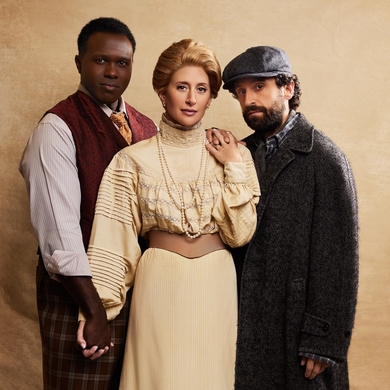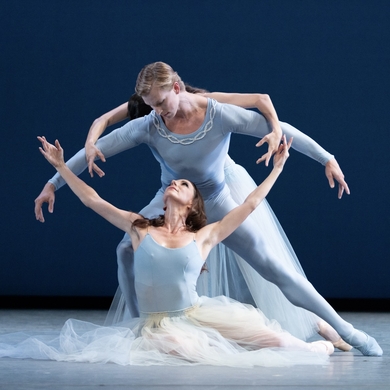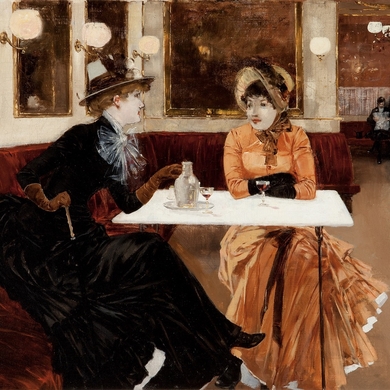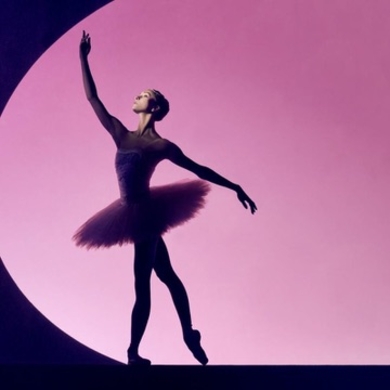Last year’s Festival d’automne mounted a massive midcareer retrospective of the African-American émigré Trajal Harrell. This year’s focus—on Brussels-based Moroccan Radouan Mriziga—only involves three shows. Its aim is less to celebrate the architecturally inclined choreographer than to welcome him into the avant-garde’s big tent and introduce him to the rest of us. Mriziga shares American minimalist Lucinda Childs’s obsession with pattern but not her immaculate presentation nor her high modernist stripping of cultural signs. Indeed, the Maghreb pervades Mriziga’s patterns. In this respect, at least, he is on trend: if anything holds the enormous festival together, it’s the intriguing mashup of a very Western, insouciant pedestrianism with aspects from the non-western cultures of France’s once-colonized. For his first festival show this year, Mriziga joins forces with fellow Belgian Anne Teresa de Keersmaeker and her troupe, Rosas, “to make Vivaldi’s Four Seasons heard” after centuries of banalizing overuse. In November, he swaps European seasons for a Moroccan landscape: Atlas/The Mountain is the first part of a trilogy that will encompass the desert and the sea. In between these elemental works, the meditative, statuesque Libya, for the September mini-festival Carte Blanche Dream City, transmutes to movement “the particular kind of listening” that the traditional North African music known as tarab (or, “enchantment”) invites: “letting yourself be carried away.” —Apollinaire Scherr



